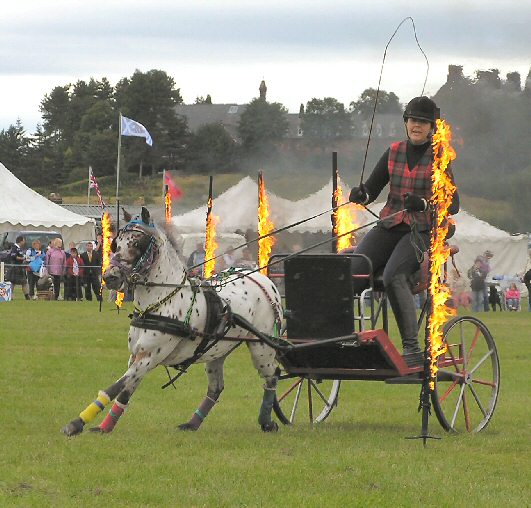 My commitment to laziness and one post a day has gotten us scooped again. Oh, well.
My commitment to laziness and one post a day has gotten us scooped again. Oh, well.
Yesterday I saw this article on the proposed sequel to Chariots of Fire and the controversy that is brewing due to the fact that the writer has now included the character of Harold Abrahams to the script.
Quick recap, although the original article in the Guardian sums it up quite well: Eric Liddell and Harold Abrahams were, respectively, Scottish and English, Christian and Jewish. They were both sprinters. They both competed in the 1924 Olympics in the 100m dash. However, the final was on Sunday and Liddell refused to race on the Lord's day. Abrahams won, but Liddell also entered the 400m, in which he won the gold medal.
Based on what I know of the history, the film made a much bigger deal over the Sunday race than Liddell did. He knew the schedule month's in advance and had been training for the 400m. Apparently the only race that Abrahams and Liddell ever competed directly was the 200m, where Liddell won bronze and Abrahams came in 6th. I don't know if their rivalry was a much as they made it out to be, but films need good drama. Personally, I haven't seen this film in about 15 years, and when I was 12 I thought it was tedious and unremarkable except for the legendary opening and closing sequences with the famous score by Vangelis.
The controversy is from Abrahams' family, which is concerned that a film about the later lives of Liddell and Abrahams, written by a Christian, will skew the perception of Abrahams from the historical reality.
Personally, I'm quite curious how the writer, Rich Swingle, will relate their lives after 1924. Here's the facts: Abrahams broke his leg in 1925 and never ran competively again. He became a barrister(British for lawyer) as well as working as a sports official and journalist. He worked for most of his life promoting athletics in England and elsewhere.
Liddell became a missionary in China from 1925 to 1943, when he was captured by invading Japanese forces. He (SPOILER)died of a brain tumor in a POW Camp in 1945.
So what we'll have is a film where the two main characters never meet and probably never interact at all. In fact, the film might end up being more about Abrahams since he was active in much more diverse activities than Liddell. Perhaps Abrahams was added because Liddell's pre-WW2 life in China was not the most exciting of material. My guess is that they'll have stuff like Abrahams covering the 1936 Olympics in Berlin(he really did) and lots of "gathering storm" stuff leading up to the war. Maybe they'll even frame the film with Liddell's funeral, much the way that Chariots of Fire was framed with Abrahams' funeral from the 1970's.
Ok, here's the buzz from two other blogs:
Jeffery Overstreet at Looking Closer Journal writes "And I hope that these concerns only encourage the filmmakers and screenwriters to tell the truth as beautifully as they can, rather than contriving some heavy-handed message, religious or otherwise. Because the truth belongs to God. And it will have the greatest influence of all… for his glory. It always does."
Good thoughts, although I would take issue with this bit:
"Wait… why the stress on the word “committed.” Is a “committed Christian” somehow worse than a Christian? Would they prefer a hypocrite, or a faker? A half-hearted Christian? Ya gotta love the culture of tolerance. If somebody raised a stink over a screenplay being written by a “committed Muslim” or “a committed Buddhist”… excuse my religious language, but ALL HELL WOULD BREAK LOOSE."
What do you think would happen if a "committed Jew" was writing about a famous Christian figure? How about a atheist who decided to write a screenplay that featured Billy Graham in a supporting role? Not that either of these would be offensive, but I can see where the family would be concerned that their Jewish father being co-opted by another religion.
Over at the Film Chat Blog Peter Chattaway corrects Overstreet on a couple of points but doesn't add much of his own commentary. I find it a bit odd that Chattaway doesn't object to this since he has previously raised issues with parodies of real life people, such as the forthcoming Walk Hard. It seems that if you are going to take issue with a film mocking someone's personal life then you should also object to a film using a non-Christian for Christian purposes. Maybe its just me. It should also be noted that neither of these films are released and neither myself or Chattaway has seen either yet, so our opinions are based solely upon speculation from what little we know.
(story from Guardian Unlimited)
Powered by QumanaTags: christian, films, cinema, news, blogs, sports, controversy, religion




No comments:
Post a Comment